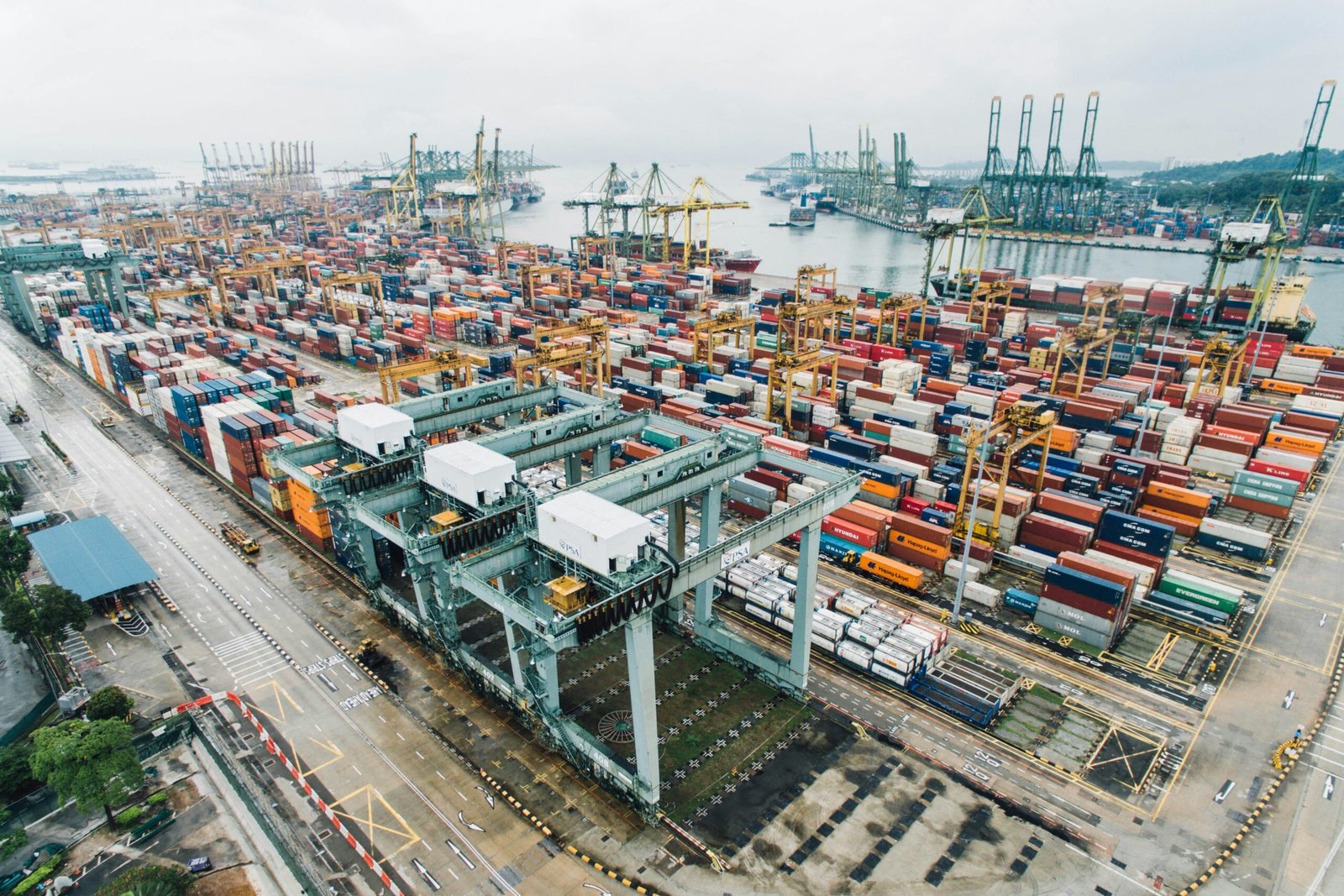The Institute Cargo Clauses (ICC) are standardized terms used in cargo insurance policies to articulate the scope of coverage available for goods transported via marine vessels. These clauses play a critical role in marine insurance, serving to clearly define the risks covered under an insurance policy. By establishing a uniform set of terms, the ICC ensures consistency and transparency in the realm of cargo insurance, which is essential for importers, exporters, and insurers alike.
The Institute Cargo Clauses are categorized into three main types: A, B, and C. Each of these clauses offers a different level of coverage, catering to varying needs and risk tolerances of the insured parties. The Institute Cargo Clauses (A) provide the most comprehensive coverage, including protection against a wide array of potential losses or damages. This clause is typically favored by those who seek maximum security for their cargo.
On the other hand, the Institute Cargo Clauses (B) offer a more moderate level of coverage, excluding certain types of risks that are covered under Clause A. This option is often selected by those who wish to balance cost and coverage, ensuring protection against common perils while avoiding the higher premiums associated with Clause A. Finally, the Institute Cargo Clauses (C) provide the most basic coverage, primarily safeguarding against major risks such as total loss of the cargo due to specific perils. This type of clause is usually chosen by those who are willing to assume a higher degree of risk in exchange for lower insurance premiums.
Understanding the distinctions between Institute Cargo Clauses (A, B, C) is vital for parties involved in the transportation of goods. By selecting the appropriate clause, they can tailor the insurance coverage to meet their specific needs and risk profiles, ensuring that their cargo is adequately protected during transit. Whether opting for the comprehensive protection of ICC Clause A, the balanced coverage of ICC Clause B, or the basic security of ICC Clause C, it is imperative to make an informed decision to safeguard investments effectively.
Institute Cargo Clause (A) – All Risks Coverage
Institute Cargo Clause (A), often referred to as ‘All Risks’ coverage, represents the most comprehensive form of marine insurance available. This clause is designed to provide extensive protection for goods in transit, ensuring that they are safeguarded against a wide array of potential perils. The term ‘All Risks’ in marine insurance denotes coverage for all perils unless specifically excluded, making it an ideal choice for importers and exporters seeking maximum security for their cargo.
Under ICC Clause A, coverage extends to numerous risks including, but not limited to, theft, damage during loading and unloading, and natural disasters such as storms, earthquakes, and floods. This broad scope of protection ensures that cargo owners can mitigate a significant portion of the financial risks associated with international shipping. Moreover, the clause also covers damages resulting from accidents like collisions and overturning of the transporting vessel or vehicle, as well as loss due to fire and explosion.
Despite its extensive coverage, Institute Cargo Clause (A) does have notable exclusions. These typically include losses due to inherent vice, which refers to the natural characteristics of the cargo that may cause it to spoil or deteriorate over time. Additionally, damages due to inadequate packaging, delay, and acts of war or terrorism are not covered under this clause. It is imperative for policyholders to thoroughly understand these exclusions to ensure that they are not caught off guard by uncovered risks.
Overall, while ICC Clause A provides the most comprehensive protection among the marine clauses, it is essential for cargo owners to assess their specific needs and understand the exclusions that may impact their coverage. By doing so, they can make informed decisions and select the appropriate level of import insurance for their valuable shipments.
Institute Cargo Clause (B) – Named Perils Coverage
The Institute Cargo Clause (B), commonly referred to as ICC Clause B, offers a form of ‘Named Perils’ coverage. Unlike the more comprehensive ICC Clause A, Clause B provides coverage only for specific risks explicitly mentioned in the policy. This means that cargo owners must be acutely aware of which perils are included and which are excluded to make informed decisions regarding their marine insurance needs.
Typically, ICC Clause B covers perils such as fire, explosion, vessel collision, and stranding. These are considered to be some of the more common risks faced during marine transportation. However, it is crucial to note that this clause does not provide coverage for all potential hazards. For instance, risks such as theft, pilferage, or non-delivery might not be included unless they are specifically added through additional endorsements or supplementary clauses.
Understanding the specific perils covered under ICC Clause B is essential for importers, exporters, and logistics professionals who rely on marine clauses to protect their cargo. Fire and explosion are significant concerns due to the nature of maritime transport, where combustible materials and confined spaces can exacerbate such events. Vessel collisions and strandings are also critical risks, as they can result in substantial damage to cargo, especially in challenging sea conditions.
Moreover, it is vital to be aware of any exclusions that may apply under Clause B. Exclusions might include damages resulting from inherent vice (natural properties of the cargo that cause deterioration), ordinary leakage, or wear and tear. Additionally, losses due to war, strikes, and similar political risks are typically not covered unless specifically endorsed.
In conclusion, while ICC Clause B provides a narrower scope of coverage compared to ICC Clause A, it remains an essential tool for managing specific named perils in marine transportation. By understanding the specific risks covered and any exclusions, cargo owners can better tailor their cargo insurance policies to meet their particular needs, ensuring adequate protection for their goods during transit.
Institute Cargo Clause (C) – Basic Coverage
The Institute Cargo Clause (C) provides the most limited coverage among the three Institute Cargo Clauses (A, B, C). This clause is designed to offer basic protection by covering only a few specific, named perils. Such limited coverage is suitable for certain scenarios but may not be adequate for all shipping needs.
Under Institute Cargo Clause (C), the risks covered include:
- Fire or explosion: Damage or loss caused by fire or explosion during the transport of goods.
- Vessel stranding or grounding: Coverage extends to incidents where the vessel is stranded, grounded, sunk, or capsized.
- Overturning or derailment: Protection is provided for situations involving the overturning or derailment of land conveyances.
- Jettison: Losses due to the intentional discharge of cargo from the vessel to save the vessel and remaining cargo.
- General average sacrifice: Coverage for losses incurred as a result of a general average sacrifice made to prevent further loss.
While Institute Cargo Clause (C) offers basic coverage, it may be sufficient for certain types of cargo and shipping routes where the risks are perceived to be lower. For instance, shipments that are transported via well-maintained and reputable carriers, or goods with lower value and lower susceptibility to damage, might find Clause (C) to be an adequate and cost-effective option.
However, opting for this minimal coverage involves potential risks. Importers and exporters should carefully consider the value of the cargo and the likelihood of encountering perils not covered by Clause (C). For high-value goods or routes known to have higher risks, this basic coverage may not provide adequate protection.
In comparison, Institute Cargo Clause (A) offers the most comprehensive coverage, including all risks except those specifically excluded, while Institute Cargo Clause (B) provides an intermediate level of protection. Understanding the differences between these marine insurance clauses is crucial for selecting the appropriate level of cargo insurance based on the nature of the goods and the specific shipping scenario.








